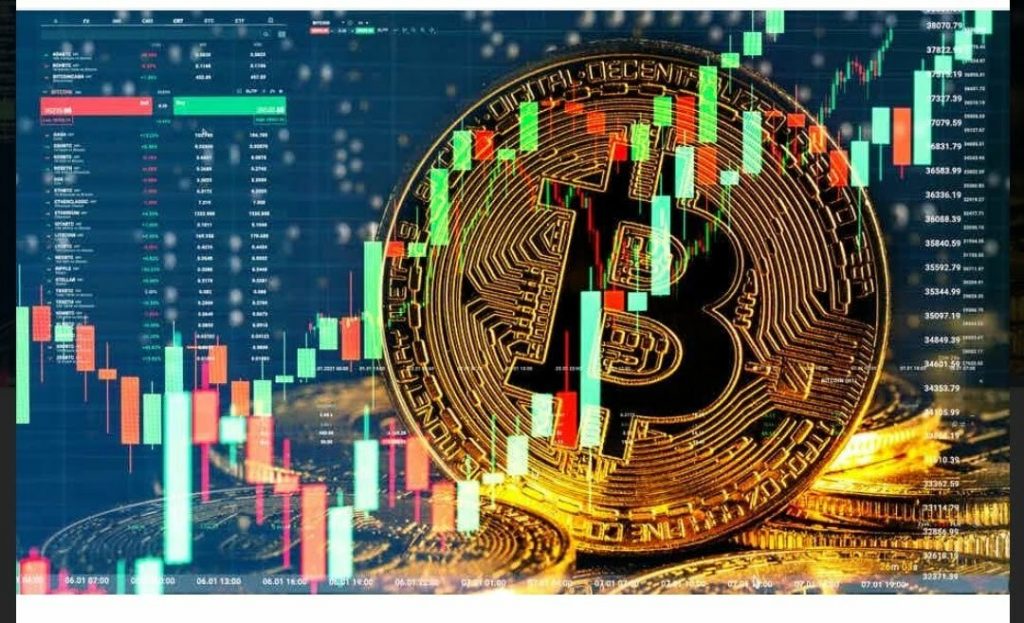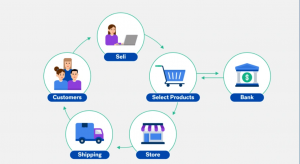What is Bitcoin?
The world’s first widely-adopted cryptocurrency. With it, people can securely and directly send each other digital money on the internet

The Origin
It was created by Satoshi Nakamoto, a pseudonymous person or team who outlined the technology in a 2008 white paper. It’s an appealingly simple concept: it is digital money that allows for secure peer-to-peer transactions on the internet.
How it is Different from Traditional Financial Systems?
- Unlike services like Venmo and PayPal, which rely on the traditional financial system for permission to transfer money and on existing debit/credit accounts, it is decentralized: any two people, anywhere in the world, can send bitcoin to each other without the involvement of a bank, government, or other institution.
- Every transaction involving it is tracked on the blockchain, which is similar to a bank’s ledger, or log of customers’ funds going in and out of the bank. In simple terms, it’s a record of every transaction ever made using bitcoin.
- Unlike a bank’s ledger, the blockchain is distributed across the entire network. No company, country, or third party is in control of it; and anyone can become part of that network.
- There will only ever be 21 million bitcoin. This is digital money that cannot be inflated or manipulated in any way.

Functions
- An investment vehicle
- A store of value similar to gold
- A way to transfer value around the world
- Even just a way to explore an emerging technology
Use Of it in illegal Transactions
Its use of it by criminals has attracted the attention of financial regulators, legislative bodies, law enforcement, and the media. Several news outlets have asserted that its popularity of its hinges on the ability to use them to purchase illegal goods. Nobel-prize-winning economist Joseph Stiglitz says that its anonymity encourages money laundering and other crimes.

Economic Concerns Due to Bitcoin
Along with other cryptocurrencies, has been described as an economic bubble by at least eight Nobel Memorial Prize in Economic Sciences laureates at various times, including Robert Shiller on 1 March 2014,
on 2 February 2018, professor Nouriel Roubini of New York University called it the “mother of all bubbles”, and on 27 April 2018, a University of Chicago economist James Heckman compared it to the 17th-century tulip mania.
Journalists, economists, investors, and the central bank of Estonia have voiced concerns that it is a Ponzi scheme. In April 2013, Eric Posner, a law professor at the University of Chicago, stated that “a real Ponzi “scheme takes fraud; bitcoin, by contrast, seems more like a collective delusion.”A July 2014 report by the World Bank concluded that bitcoin was not a deliberate Ponzi scheme. In June 2014, the Swiss Federal Council examined concerns that it might be a pyramid scheme, and concluded that “since in the case of bitcoin the typical promises of profits are lacking, it cannot be assumed that it is a pyramid scheme.”
Wealth is highly concentrated, with 0.01% holding 27% of in-circulation currency, as of 2021.
Mining
Mining is the process of creating a new bitcoin by solving puzzles. The first coin miner (as these systems are called) to solve the puzzle is rewarded with it. The mining process also confirms transactions on the cryptocurrency’s network and makes them trustworthy.
When it was first launched in 2010 its price was less than 1 dollar nobody has ever thought that it will become such a giant cryptocurrency those who were holding it from starting years 2011-to 2015 gained enormous wealth. The conclusion is nobody predicted what and when did anybody’s luck shine.








